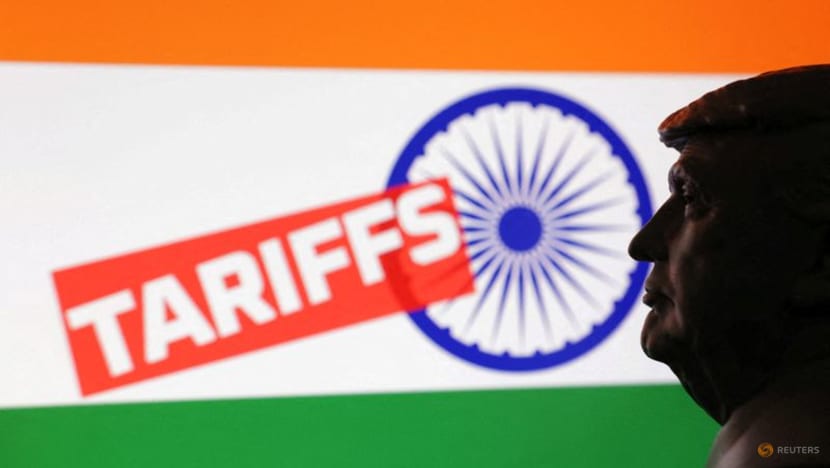Business
India Advances US Trade Talks Despite 50% Tariff Increase

India is pressing forward with trade negotiations with the United States, despite a significant increase in tariffs on its exports, which have now reached a striking 50%. This development follows the U.S. government’s decision to impose an additional 25% tariff on Indian goods due to India’s continued purchase of sanctioned Russian oil. Two lawmakers revealed these details during a briefing to a parliamentary foreign affairs panel.
President Donald Trump enacted the tariff hike last week, marking one of the highest duty rates applied to any U.S. trading partner. Lawmakers emphasized that the relationship between India and the U.S. extends beyond trade alone. “Our relations with the U.S. are multi-dimensional and should not be seen only through the prism of trade,” stated one lawmaker, referring to remarks made during the foreign secretary’s briefing.
Shashi Tharoor, a leader in the opposition Congress party and head of the parliamentary panel, confirmed that trade discussions would proceed as planned. “As of now, there is no change in the existing plans for the sixth round,” he noted, referencing a U.S. trade delegation’s scheduled visit to New Delhi on August 25, 2023.
In a written response to a query from a lawmaker, junior finance minister Pankaj Chaudhary indicated that approximately 55% of India’s merchandise exports to the United States would be affected by the new tariff structure. This figure includes the initial 25% levy imposed previously. Chaudhary added, “The Department of Commerce is engaged with all stakeholders for their assessment of the situation.”
Trade between the United States and India, the world’s largest and fifth-largest economies, was valued at around $87 billion in the last fiscal year, according to estimates from the Indian government.
Concerns were also raised during the parliamentary session regarding comments made by Field Marshal Asim Munir, the chief of the Pakistani army, about nuclear threats in South Asia during a recent visit to the U.S. Tharoor responded firmly, stating, “Nuclear blackmail will not work with India, and no party, or representative disagrees with this view.” He noted that the Indian Ministry of External Affairs had condemned Munir’s remarks.
As the situation evolves, both nations remain focused on the importance of their strategic partnership, indicating that trade negotiations will continue amidst these challenges.
-

 World5 months ago
World5 months agoSouth Korea’s Foreign Minister Cho Hyun to Visit China This Week
-

 Business5 months ago
Business5 months agoStarling Bank Plans Secondary Share Sale, Targeting $5.4 Billion Valuation
-

 Top Stories5 months ago
Top Stories5 months agoMunsang College Celebrates 100 Years with Grand Ceremony
-

 World5 months ago
World5 months agoPAS Aims to Expand Parliamentary Influence in Upcoming Election
-

 Business7 months ago
Business7 months agoKenvue Dismisses CEO Thibaut Mongon as Strategic Review Advances
-

 Lifestyle6 months ago
Lifestyle6 months agoHumanism Camp Engages 250 Youths in Summer Fest 2025
-

 Sports6 months ago
Sports6 months agoDe Minaur Triumphs at Washington Open After Thrilling Comeback
-

 Sports7 months ago
Sports7 months agoTupou and Daugunu Join First Nations Squad for Lions Clash
-

 Top Stories7 months ago
Top Stories7 months agoColombian Senator Miguel Uribe Shows Signs of Recovery After Attack
-

 World7 months ago
World7 months agoASEAN Gears Up for Historic Joint Meeting of Foreign and Economic Ministers
-

 Health6 months ago
Health6 months agoNew Study Challenges Assumptions About Aging and Inflammation
-

 Business7 months ago
Business7 months agoOil Prices Surge Following New EU Sanctions on Russia









